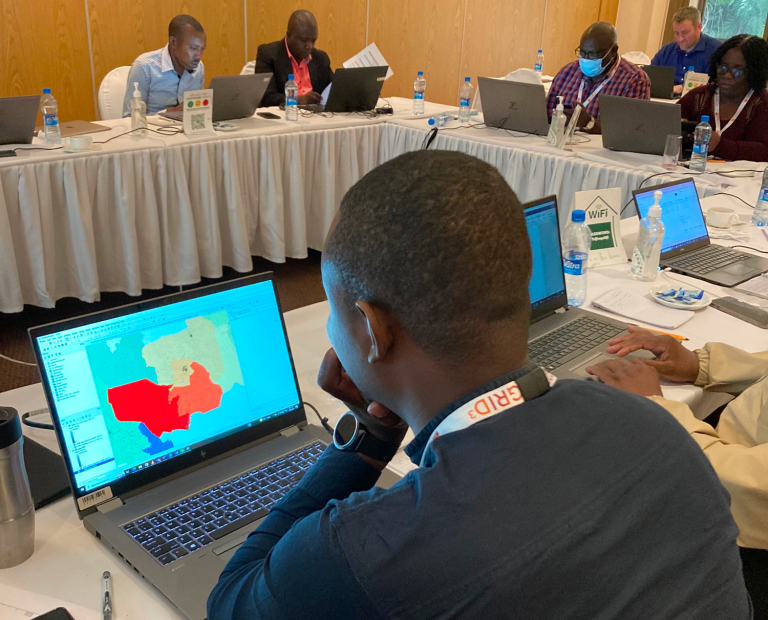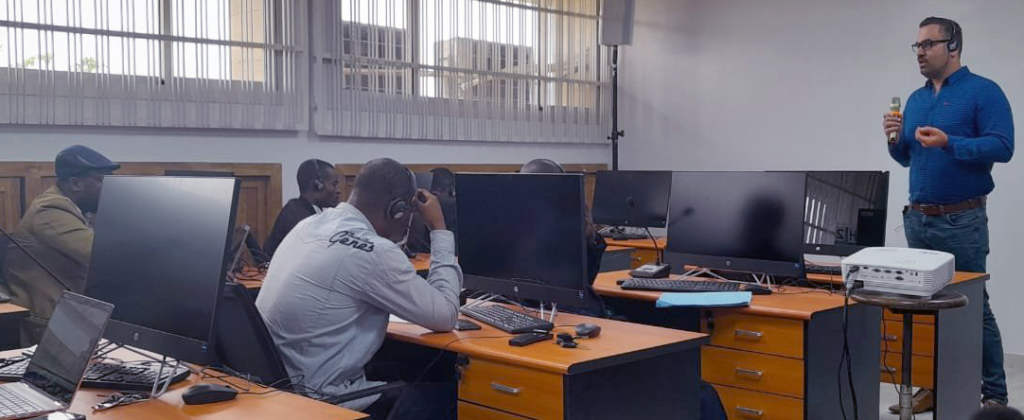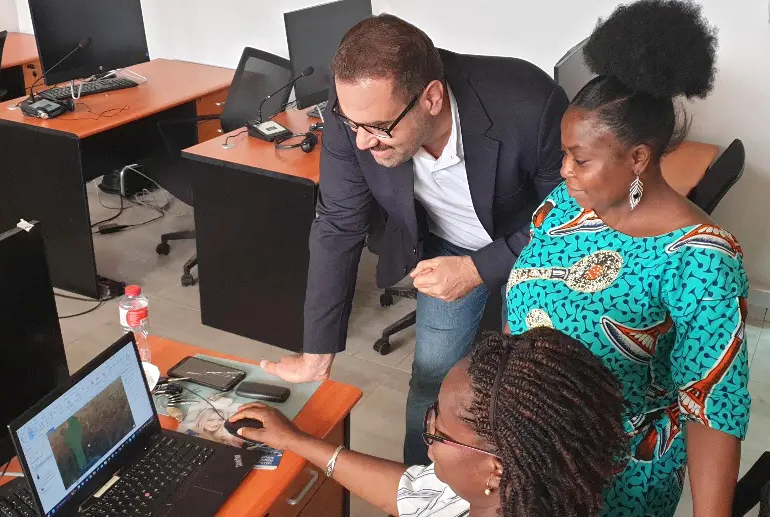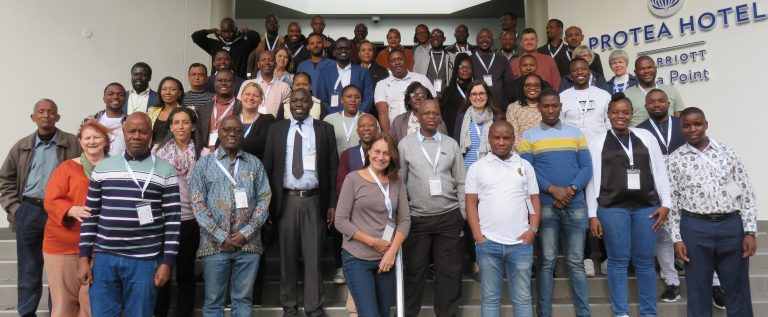Three members of our team have recently returned from a very productive few weeks where they were engaged in running workshops in South Africa, Zambia and Benin.
Senior Enterprise Fellow Heather Chamberlain joined a 10 strong DHIS2 training facilitation team in Cape Town, South Africa, where she was involved in training 50 participants from 12 countries in the use of maps to visualise data within the DHIS2 platform.

At the end of the week Heather joined GIS Research Technician Tom Abbott in Lusaka to work with the Zambia Statistics Agency (ZamStats) on a GRID3-funded project to support new R and QGIS users get to grips with the popRF() package. Heather and Tom guided participants as they got to grips with producing gridded outputs from the 2022 Zambian population and housing census.
Workshop participants included representatives from ZamStats, the Ministry of Local Government, Ministry of Health and the University of Zambia who received training on using data to reach vulnerable populations when planning health interventions.

Dr Sarchil Qader returned for a second visit to Benin in eight months and was pleased to see statisticians at the National Institute of Statistics and Demography (INSTaD) had integrated the preEA Tool and WorldPop methodology into their workflows. INSTaD are gearing up to conduct Benin’s first digital census and the preEA Tool is helping them create accurate and reliable census Enumeration Area boundaries. Dr Qader guided participants on the application of the preEA Tool in the three communes that have been selected for the first census cartography, helped them review the outputs they have created and providing advice on the overall implementation of the methodology and ground data collection.
The visit was made in close collaboration with the UNFPA country office, who provided financial support, and the UNFPA’s West and Central Africa Regional Office.




